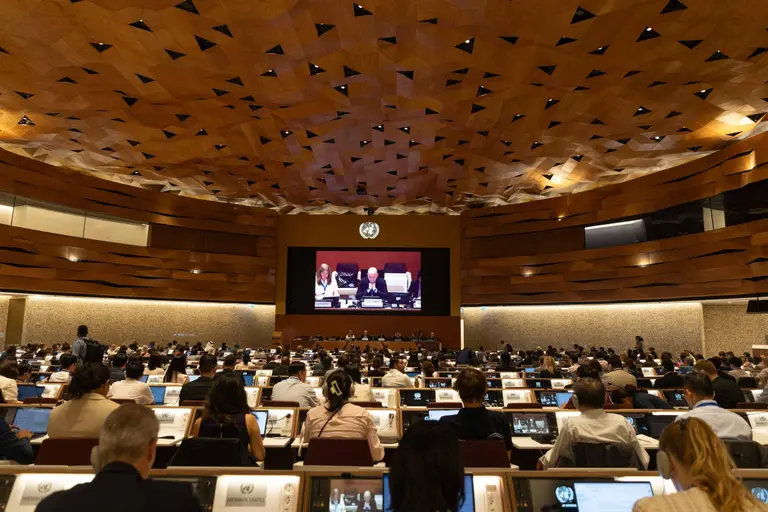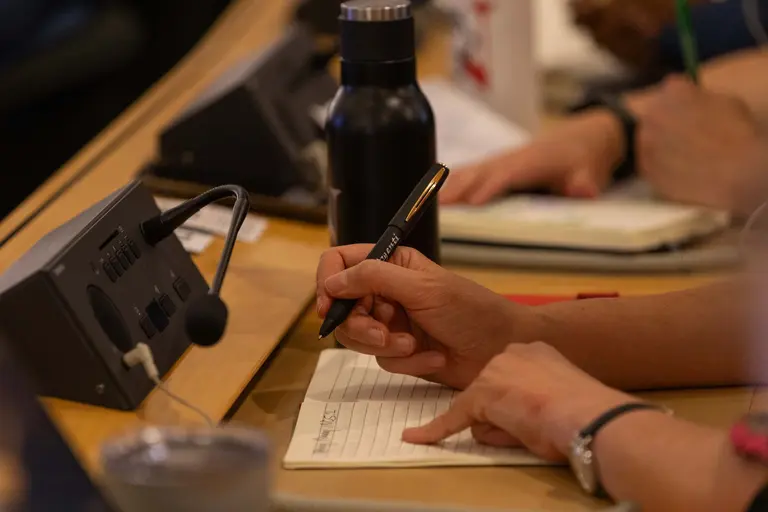
The UN Global Plastic Agreement (INC-5.2) held in Geneva in August 2025 did not reach the final text adoption. This breakdown is read as a signal to change the game. Even if the treaty is stalled, city procurement and corporate buying guides are creating norms ahead, and Korea must prepare a slow but strong agreement with virgin absolute reduction, reuse standards, and toxic transparency.
What was confirmed in Geneva was not the gaps in the wording but the boundaries of politics. While many countries clearly demanded production reduction and regulation of toxic additives, some oil-producing and producing countries used consensus as a shield to leave those demands at the door. Therefore, this breakdown is disappointing but also clearly reveals one fact: the faster a treaty is concluded, the more likely it is to be weak.
What we need while negotiations are not progressing is not hasty compromises but a redesign of the game. The process must embrace flexibility such as issue-by-issue voting and phased adoption. Outside the negotiation room, already functioning regulations and standards should draw the negotiations in concentric circles.
What moves before the legal text are the city's procurement standards, corporate buying guides, and operational protocols that consumers feel. Looking ahead to the next 1-2 years, it is difficult for a single large treaty to solve everything. There is a high possibility that multiple tracks will stimulate each other and create norms. The High Ambition Coalition will present guidelines first, even if the legal binding force is weak, and regulations from regions and countries centered around Europe will be transformed into de facto obligations through the thresholds of export and procurement.
Global brands and distributors cannot bear the costs of uncertainty and begin to align their own standards. Definitions such as virgin resin absolute reduction, the turnover of reuse systems, and the disclosure of additives will enter as purchasing requirements, and even if the negotiation text is undecided, the supply chain will already adapt to the new order. Even if the treaty is stalled, norms will proceed like this. The site of this change is not the negotiation room but the city and the market.
So why must cities continue to be laboratories? The desire for a quick agreement is legitimate, but the lock-in effect created by weak agreements is longer. Cities become pathways that accelerate agreements while avoiding this risk. Changing laws takes a long time, but procurement and event operation standards can be changed before the seasons change.
When the festival's cup changes to reuse and the containers for public meals are converted to reusable, data begins to accumulate from that day. Numbers such as recovery rates, cleaning costs, hygiene indicators, and satisfaction will soon become the language of policy design. When the international stage is stalled, what is needed is not words but evidence. The procurement standards of large cities immediately persuade the market, and suppliers change their designs to align packaging, additives, and reuse logistics with the standards, forming a de facto pre-agreement.
Above all, cities are spaces where failure can occur. Only in places that allow small failures can the blueprints for large transitions emerge. This accumulation is necessary for a fast yet strong agreement to be possible. The scene where field data drives the negotiation text begins right here.

Now let’s talk about Korea's choice. What is needed is not slogans but trust in operations and numbers. Corporate sustainability reports must move beyond the comfort of recycling rates and place virgin resin absolute reduction at the forefront. It is not the percentage of total annual volume but the detailed disclosure by quarter and product category that proves actual reductions.
Setting common goals with primary and secondary suppliers in the supply chain to make Scope 3 a reality can no longer be postponed. Reuse must be a standard, not a principle. By bundling deposits, cleaning, recovery, quality inspection, and hygiene monitoring into a single protocol and establishing it as a national standard, and applying it in phases starting from municipal procurement and large events, investment and scale-up will follow. Toxic transparency is also urgent.
A roadmap must be presented with a schedule on what additives are included, which risk groups will be phased out by when, and how information will be disclosed to whom. By designing a framework that is mutually recognized with European and international guidelines in advance, the adaptation costs that recur every time regulations change can be significantly reduced. This process of aligning operations and numbers creates Korea's trust. And that trust becomes the foundation for the next negotiation.
Where politics has stalled, standards lead politics. The city's procurement standards, corporate purchasing standards, and operational protocols that citizens feel first create de facto agreements, and that agreement is later inscribed in international texts. Let’s break the habit of acting only when there is an agreement, actually reduce production, operate reuse, and reveal toxicity. The thickness of the accumulated numbers, standards, and practices will not make slow agreements weak but rather enable a proper agreement, albeit late.


![[Scenario] 2026 Global Wildfire Calendar: The Unending Cycle of Flames](https://cdn.breathjournal.com/w400/q80/article-images/2025-10-01/83cbd0d7-c7c9-4101-b4f6-e39cff028d87.png)

![[Focused Planning] 2026 Global Wildfire Calendar, Facing a Charred Future](https://cdn.breathjournal.com/w400/q80/article-images/2025-10-01/5be639f5-d684-4605-acb1-e0127c554e7c.png)

댓글 (0)
댓글 작성
댓글을 작성하려면 로그인이 필요합니다.
로그인하기